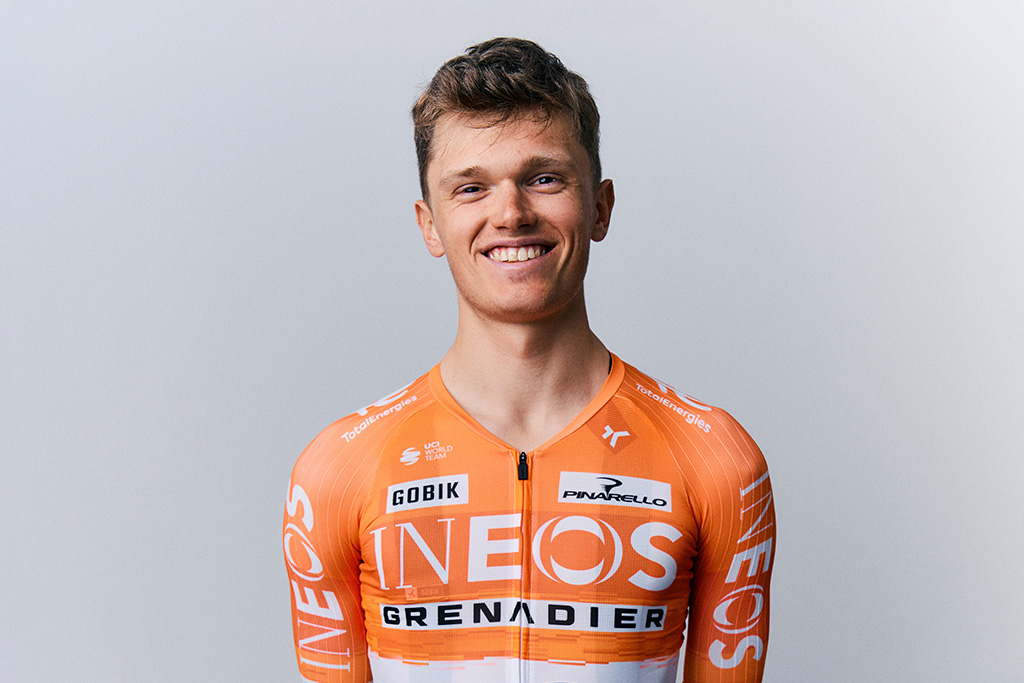Fewer stars, but potentially more open racing – How will the absence of several big names affect the Rwanda World Championships?
Riders like Mathieu van der Poel, Lotte Kopecky and Jonas Vingegaard are all skipping the Rwandan World Championships, but this could actually be a positive
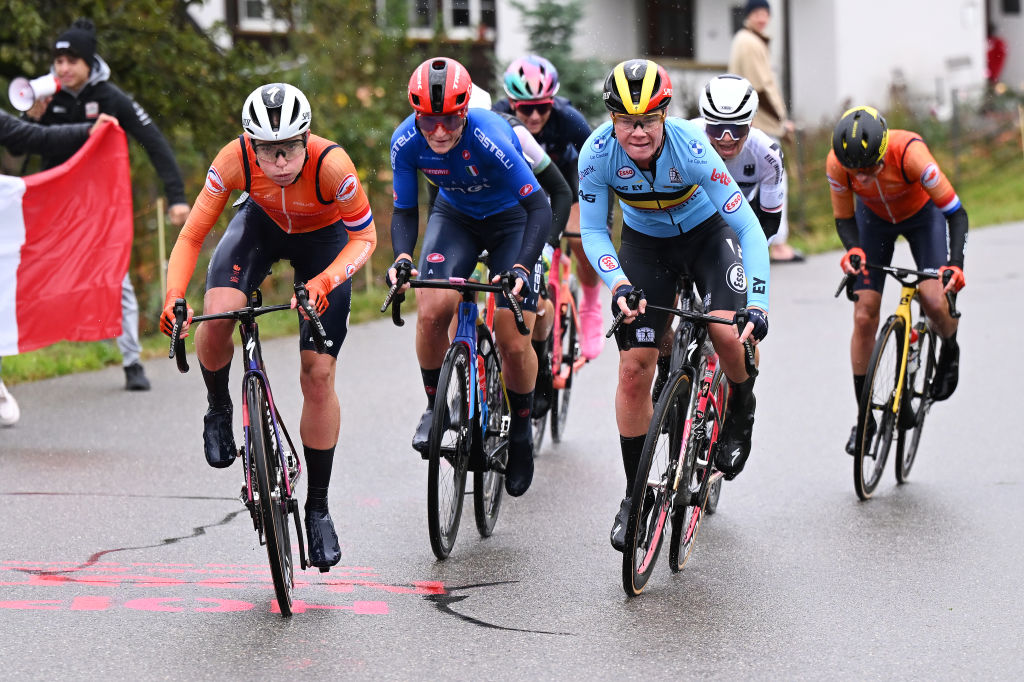
The latest race content, interviews, features, reviews and expert buying guides, direct to your inbox!
You are now subscribed
Your newsletter sign-up was successful
Whenever any country or region puts on a bike race, they hope they're going to attract some big names. The stars of the sport, those that even transcend cycling perhaps, have the ability to put an event on the map just by showing up, and can almost guarantee some exciting racing.
When the race you're organising is the World Championships, you can have fairly high hopes that many of the world's very best riders will be there, because one of the sport's top accolades is up for grabs: the rainbow jersey.
However, even at the Worlds, there are always riders missing, for a great variety of reasons, and that's no different for the 2025 World Championships in Rwanda. Hosting the Road Worlds in Africa for the first time ever in what is set to be a landmark event, everyone would have been hoping for a blockbuster list of riders to line up in Kigali, too.
Many of the biggest stars will be there for the road races next weekend, with Tadej Pogačar and Remco Evenepoel headlining the men's race, whilst Demi Vollering, Elisa Longo Borghini and Pauline Ferrand-Prévot will battle out for the women's title.
However, plenty of riders won't be there. Initially planning to go, Jonas Vingegaard pulled out recently, ending the hopes of the iconic Pogačar-Vingegaard rivalry at a World Championships. Former rainbow jersey Mathieu van der Poel will also be absent, as will his long-term foe Wout van Aert. On the women's side, defending champion Lotte Kopecky won't be seeking a third term in the rainbow jersey, and prodigious one-day racer Puck Pieterse won't be there, either.
Despite the number of big names who will be in Kigali, a lot of attention has been paid to the growing list of riders who won't, and it can't be denied that several stars will be missing.
The reasons for riders skipping these Worlds are numerous. The logistics and expense of getting to Rwanda has seen many European federations – especially those strapped for funding anyway – forced to send reduced delegations. The hard courses have turned others off, with the climb-packed road races just not suitable for many – there's no point in Mads Pedersen or Lorena Wiebes racing, for example, and Biniam Girmay only latterly decided to race for Eritrea.
The latest race content, interviews, features, reviews and expert buying guides, direct to your inbox!
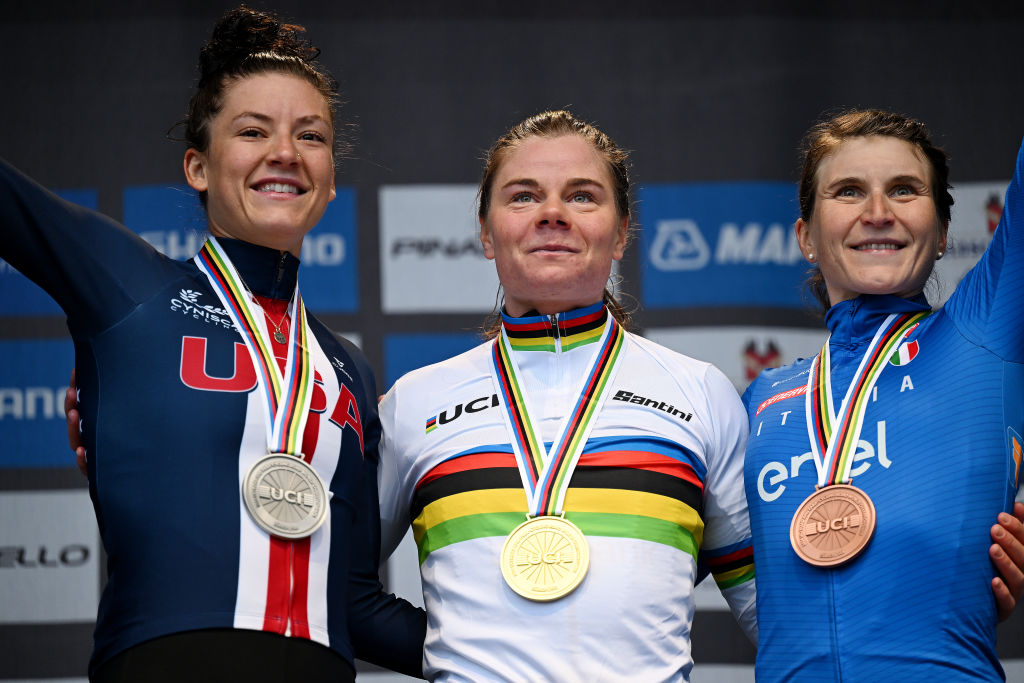
The normal issues like injury, fatigue and busy schedules come into play, too, as does the fact that the European Championships fall directly after the Worlds – some have chosen to prioritise that, with racing both on different continents a tough ask. With the Worlds taking place in Africa, there is also the added issue of worries about illness, vaccinations, the risk of malaria – and side effects from anti-malarials.
Whatever each rider or nation's personal reasoning may be, we're facing a World Championships where the lack of certain stars is a big talking point, and – anecdotally, at least – seems to be a bigger quantity than previous Worlds, especially in the era where we're used to seeing the big names race against each other repeatedly in a season.
Everyone would like to see that at Worlds, too, and the absence of certain riders has largely been painted as a negative thing, but is it, actually? To answer that question, we need to consider a few different factors.
The impact on the racing
The main concern that many fans will have is that having fewer big stars will make for less exciting or less dynamic racing, with fewer riders there to challenge for rainbow, and indeed challenge the top favourites, who are – at least in the elite men's race – somewhat predetermined.
In the elite men's road race, the consensus has been for months that it is defending champion Tadej Pogačar's race to lose. The current world champion and four-time winner of the Tour de France hasn't experienced even a shred of the so-called rainbow curse, winning Strade Bianche, the Tour of Flanders and Liège-Bastogne-Liège this year, and is the clear favourite to take another world title in Rwanda.
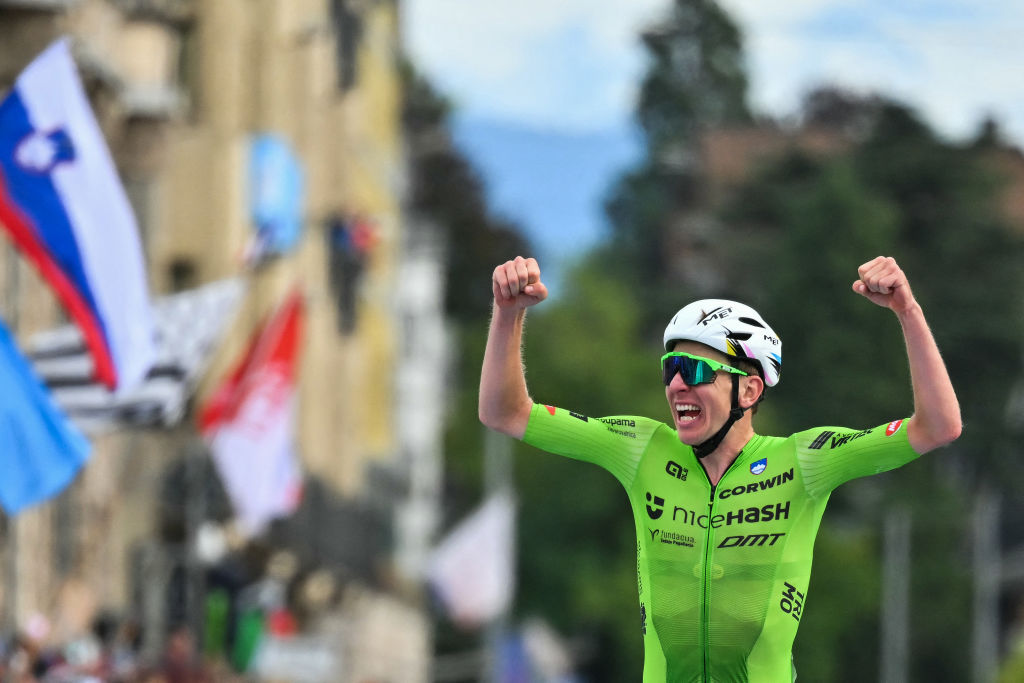
With Pogačar clearly so far ahead at the top of the list of favourites, there certainly was a hope that some of the riders who have pushed him closest this year – such as Jonas Vingegaard and Mathieu van der Poel – would be in Rwanda to duel him again, but they're not. The likes of Remco Evenepoel, Isaac del Toro and Juan Ayuso will be there, and will be formidable opponents, but they aren't such iconic, long-standing rivals to Pogačar. For every top rider missing, it does seem to increase the chance that Pogačar will just run away with another world title in Kigali, which, while impressive, isn't always the most thrilling or tense of spectacles.
In the women's race, the impact will be less, as many more of the top riders are going, and there isn't one clear favourite. In fact, that favourite might have been Lotte Kopecky, given her versatility and ability on punchy courses like the one in Kigali, so in that race, the absence of the reigning world champion may in fact make things more open. Amongst Vollering, Longo Borghini, Ferrand-Prévot and Kim Le Court-Pienaar and others, it's very hard to pick a single favourite, and that is a good thing for the races.
So, in the case of Rwanda, the assumption that missing stars equals less exciting racing is not really an easily applicable rule. And in fact, the volume of missing riders, with not just certain names not going but whole teams cutting their quotas, could actually make the racing more open and more exciting. More on that next.
More spots for lower-ranked nations
For all that there may be some disappointment from fans and organisers about the number of missing riders and reduced teams, there are some silver linings when riders or nations don't fill their quotas. When this happens, the UCI is able to reallocate spots to lower-ranked nations, who may previously only have been able to send one rider per category.
The World Championships qualification system is complex, and subtly different for every category, but essentially, UCI nations ranking defines how many riders nations can enter for each event, with extra spots for continental champions and other ways for nations that aren't ranked high enough but have one rider ranked well to get in, too.
To take the men's road race as an example, the top 50 nations may enter between eight and one riders in their teams, plus one rider from nations with a rider ranked 1 to 200 in the individual ranking that didn't already qualify, and spots for Olympic, world and continental champions if they have not already qualified a spot through their nation, plus six riders for the host nation.
The system is generous, and sees many riders and nations able to enter, but the spots for all the lower-ranked nations are still limited to just one rider, which is little to go up against super teams of eight riders. However, if the 200 spots on the start line don't get filled, due to nations not filling their quotas, spots are opened up for the lower-ranked nations to bring an additional rider.
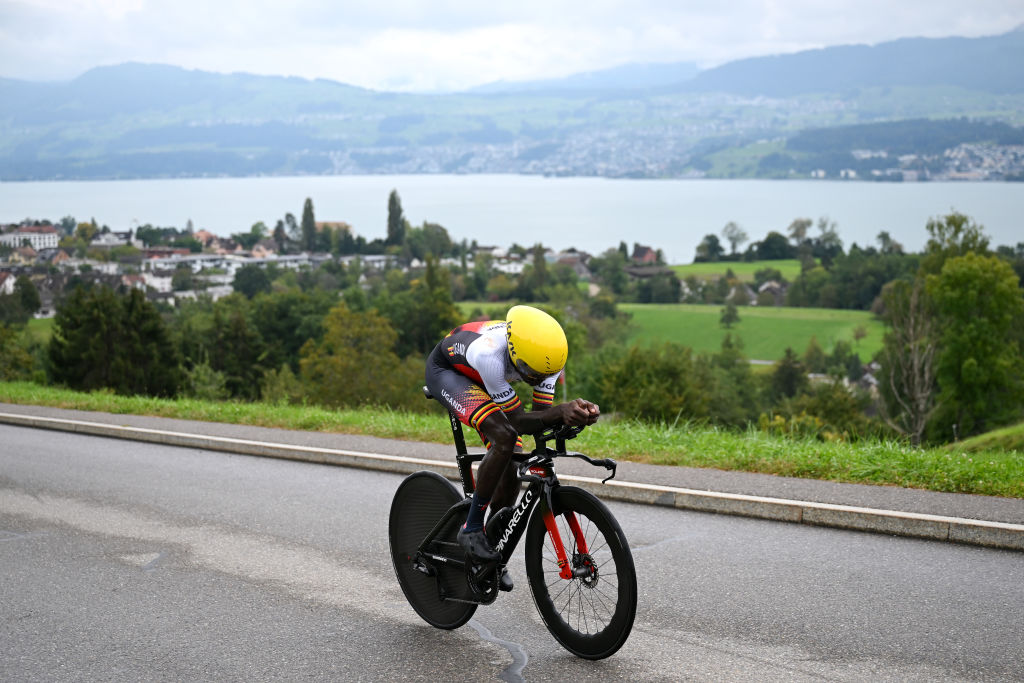
There technically isn't a provision to then enter nations that hadn't already qualified – spots are reallocated to nations in the top 50 already – but the UCI is also at liberty to invite up to three non-qualified nations to a World Championships, which can be made easier if other quotas aren't filled. With full confirmed start lists not out yet, we reached out to the UCI to confirm if these invites were used, but haven't received an answer yet.
However, from looking at the start list, several nations that aren't in the top 50 will be on the start line for the men's road race and other events: Belize, Grenada, Kenya, Guyana, Nauru, São Tomé and Príncipe, and others.
Had every top team filled their automatic quota, there wouldn't have been space on the start line for these nations, so in many ways, the absence of some riders and teams has paved the way for what will be one of the most diverse World Championships yet – really embodying what these Worlds in Rwanda signify.
This will all, in its own way, also have an impact on racing. Not that we're expecting smaller nations' second riders to be challenging Pogačar and Vollering, but the distribution of riders across teams will make the peloton much harder to control, and more akin to an Olympic Games peloton, where fewer teams are able to dominate proceedings.
What's more, more riders will be in the race seeking opportunities, which should make especially the earlier part of the race more attacking, and more dynamic, which could be a real issue for the bigger teams, who will have to spend more matches to control things. And so conversely, the lack of big names may actually make things more exciting.
Disrespect from European riders?
Though there may be plus sides to big nations not filling their quotas, or indeed a positive impact on racing, there is a less tangible, less racing-focused element to consider, and that's optics.
It's not lost on anyone that it's the first Road Worlds in Africa where the topic of riders skipping the event is a major talking point. Even when the World Championships took place in Wollongong, Australia in 2022, that was a minor question, and some nations also sent reduced delegations, but it wasn't a topic on the same scale as it is now. Australia is much, much further away from Europe than Rwanda, has a higher cost of living, and would have been just as logistically challenging for European federations, if not more.
So, that riders seem to have an easier time opting out of the Rwandan Worlds than the Wollongong event does raise some questions, namely whether the event being held in an African, non-Western country has been a factor in riders opting out of these Worlds. Of course, it must be noted, that hundreds of riders are going with no issue, and many have already been in Rwanda on recon trips, so there is no widespread issue at play here.
For some African riders, and riders from various non-European nations, who are used to travelling to faraway countries and spending a lot to do so just to be able to race, there is a certain level of disappointment that many European pros aren't returning the effort, or see what hundreds of riders do every year as too much of an imposition.
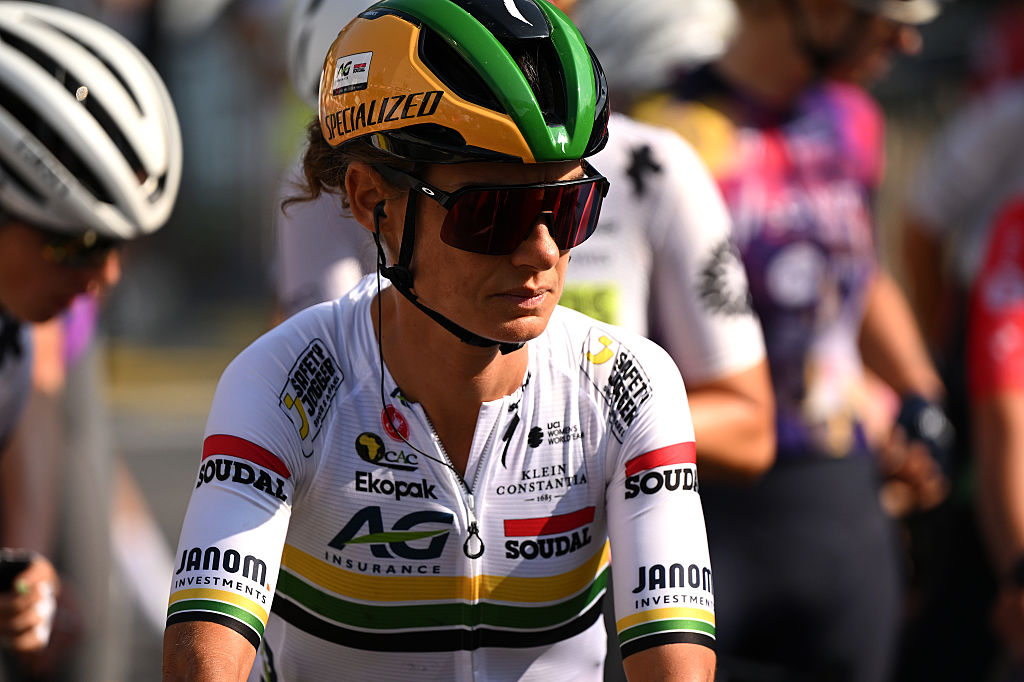
Whether riders, especially white European ones, should also be doing more to get behind an African event and the diversification of the sport is probably much too complicated a question to answer, but what we can see is this: many top riders remain pragmatically focused on racing and results, more so than what an event means to the wider picture. That even a rider like Biniam Girmay was planning not to race, despite being the global face of African cycling, must demonstrate that riders' decisions are more based on racing factors than any wider significance or sentimentality we as outsiders might ascribe to an event.
That's not to say the Worlds in Rwanda are not going to be significant – it's a huge moment for cycling in Rwanda and wider Africa, and the future of major sporting events on the continent as a whole – but for the top athletes, they are just that: a World Championships. Which riders will judge based on whether they think they have a chance of winning – or helping a teammate to win – and if it fits into their schedule.
Certainly, other factors may come into that, such as valid ones about cost or schedules, as well as some less valid ones, like preconceived ideas about an unfamiliar country, but riders skip World Championships every year, and it shouldn't be taken as a slight on these Worlds that riders are doing that this year too.
Indeed, rather than focus on those riders who aren't in Rwanda, as the Worlds begin, it's time to focus on who will be there, which is a list of many top riders across all the categories and disciplines. What's more, the missing riders have opened the door for riders from smaller nations who may not always get a chance, and a more diverse, more open peloton.
The favourites are still the favourites, and we'll still see Grand Tour and Monument winners battling for rainbow, maybe even in a more dynamic way, so in the end, a few missing stars won't be anything to worry about.
Subscribe to Cyclingnews to unlock unlimited access to our coverage of the first-ever UCI Road World Championships on African soil. Our team of journalists will bring you all the major storylines, in-depth analysis, and more directly from the action in Rwanda as the next rainbow jerseys are decided. Find out more.
Matilda is an NCTJ-qualified journalist based in the UK who joined Cyclingnews in March 2025. Prior to that, she worked as the Racing News Editor at GCN, and extensively as a freelancer contributing to Cyclingnews, Cycling Weekly, Velo, Rouleur, Escape Collective, Red Bull and more. She has reported from many of the biggest events on the calendar, including the Giro d'Italia, Tour de France Femmes, Tour of Flanders and Paris-Roubaix. She has particular experience and expertise in women's cycling, and women's sport in general. She is a graduate of modern languages and sports journalism.
You must confirm your public display name before commenting
Please logout and then login again, you will then be prompted to enter your display name.
